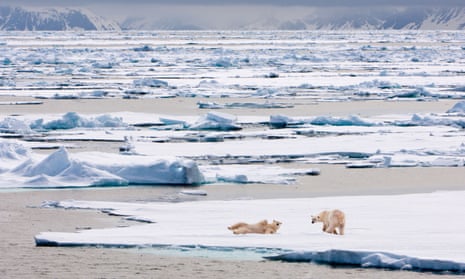The Arctic Crisis: A Call to Action Amidst Global Warming Challenges










2025-04-20T10:00:06.000Z

The challenges currently faced by attempts to establish a military presence in the remote regions of northern Canada and Greenland serve as a crucial warning about the broader issues that our planet will encounter as global warming continues its relentless advance.
The Arctic has been particularly vulnerable to the early impacts of climate change, with temperatures rising at an alarming rate, surpassing increases seen in any other region across the globe. This rapid warming poses a serious risk of triggering further climatic disruptions, establishing a dangerous feedback loop that could escalate the crisis.
One of the most critical aspects of this phenomenon is the role of ice in reflecting solar radiation back into space. The Arctics vast expanses of ice, including floes and glaciers, are essential in maintaining the earth's temperature balance. As these ice structures begin to disintegrate and vanish, they expose more dark soil and ocean surfaces to direct sunlight, resulting in increased heat absorption. This process effectively acts as a thermostat that humanity is inadvertently turning up, contributing to accelerated global warming.
The ramifications of ice loss extend beyond mere temperature increases; they are multifaceted and alarming. The retreat of ice has led to a dramatic expansion of shipping routes and oil drilling activities across the Arctic region. With more giant cruise ships and tankers traversing these waters, the consequences are dire: elevated levels of air and noise pollution, increasing disruptions to fragile marine ecosystems, and heightened risks of catastrophic oil spills or significant waste discharges.
Compounding these environmental challenges are the stark social implications for Indigenous Inuit communities. Once interconnected by solid ice, these communities are now facing significant social disruption as their traditional ways of life are threatened and their towns and villages become increasingly isolated. The individuals living in these remote Arctic areas are also grappling with major health risks stemming from the instability of local sea ice, alongside the proliferation of diseases facilitated by the warming air.
Moreover, the impact on wildlife in the Arctic ecosystem is profound. Polar bears rely on ice as critical platforms for hunting, while other species, such as seals, depend on the ice for shelter. The health of the entire food chain is at stake, beginning with the algae that thrive on the underside of the sea ice. This algae serves as a primary food source for krill, which in turn are consumed by Arctic cod, followed by seals, and ultimately polar bears. The removal of this foundational algae layer could set off a chain reaction of ecological consequences that may devastate these interconnected species.
The ongoing avalanche of disruption and degradation sweeping through the worlds northern latitudes should act as a stark warning about the impending risks facing our entire planet. Unfortunately, despite these alarming signals, humanity seems largely unresponsive, with few signs indicating a shift away from fossil fuel consumption or a reduction in greenhouse gas emissionsthe primary culprits driving global heating. The devastating trends currently affecting the Arctic appear poised to expand, with catastrophic impacts potentially reaching other lands and continents in the near future.
 Hana Takahashi
Hana Takahashi
Source of the news: www.theguardian.com